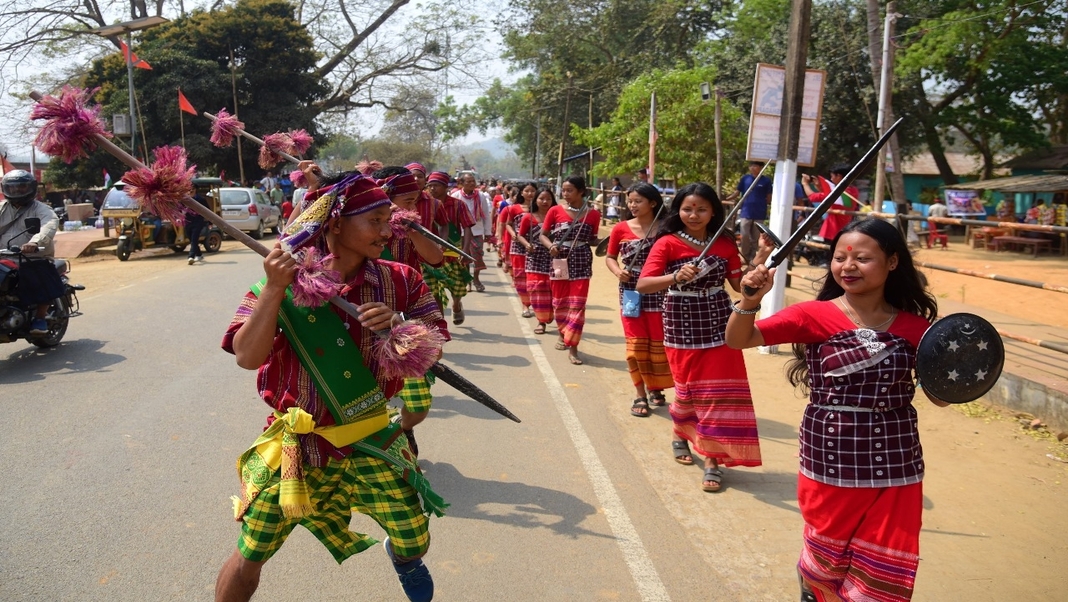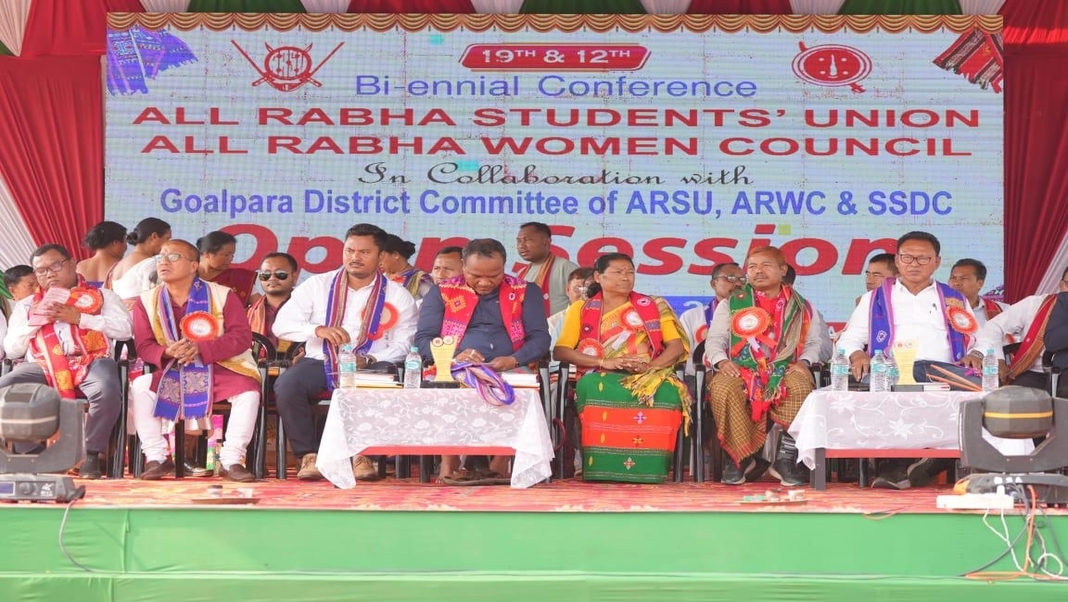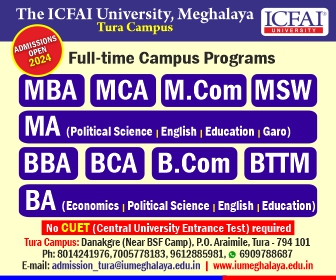Boko, Mar 16: The 19th biennial session of the All Rabha Students’ union (ARSU) and the 12th biennial session of the All Rabha Women Council (ARWC) concluded successfully on Friday with a three-day program at the heritage Dadan Marukshetri Mapakdam Kshetra in Baida, Goalpara district.

On Friday, before starting the open session of the central ARSU and ARWC conference, a cultural rally was taken out with around 10,000 people from different ethnic groups in Goalpara district taking part.

The Vice-President of the Sixth Schedule Demand Committee, Nanigopal Rabha inaugurated the cultural procession. The cultural procession reflected the cultures of various ethnic groups.
The opening ceremony was inaugurated by Chief Executive Member of Rabha Hasong Autonomous Council Tankeshwar Rabha.

Rabha said that the two organizations ARSU and ARWC hoped to achieve the desired goals of the Rabha tribal community in the coming days.
He urged, “Constitutional protection requires the full cooperation of every party and organization in the Rabha community. The government also needs social goodwill.” He said the struggle of the Rabha community will not be tolerated anymore and he urged the parties and organizations to keep a close watch on who has tolerated the struggles.
The opening ceremony was presided over by the outgoing President Nripen Khanda. Nikhil Rabha Jatiya Parishad President Babul Chandra Rabha, Nikhil Rabha Sahitya Sabha Secretary Rajkumar Rabha, Gorkha Chhatra Sangha President Sunil Chetri, AKRSU President Boloram Burman and others were also present in the open session. The ARSU has dissolved its old committee and elected Motilal Rabha Baksok as president (Goalpara), Pradeep Rabha (Kamrup), Deepankar Rabha (Tamulpur) as vice-president, Dr. Subhash Rabha (Udalguri) as general secretary with the 27-members central committee of ARSU was formed with Hiteshwar Rabha (Kamrup), Devananda Palm (Goalpara), Kaman Kantarang (Kokrajhar) and Roop Kumar Rabha (Meghalaya) as Assistant Secretaries.

Addressing the opening ceremony, AASU President Utpal Sharma said the Rabhas have enriched the Assam state. We have a lot to learn from the cultured Rabha tribes. Utpal Sharma added that the invasion of illegal Bangladeshis in Assam has changed the indigenous demographics. Therefore, the country’s ethnic groups should work together to fight against the CAA.
The general secretary of Indigenous Tribal Sahitya Sabha Kamalakanta Musahary said in his speech during the open session that Miching, Tiwa, Deuri, Dimacha and Rabha languages have been given the medium of primary education after 51 years of struggle. Musahary added that the Indigenous Tribal Sahitya Sabha is not opposed to tribalization of the six ethnic groups but urged the Assam government to ensure that other tribes are not harmed in doing so. He expressed surprise that there was no mention of CAA in the recently signed Ulfa agreement. Khakhlary also highlighted the long struggle of the Boro people for the establishment of the Boro language. Culture will survive only if there is a mother tongue. He urged the younger generation to come forward to get education in their mother tongue.

He said that the government was forced to implement the new National Education Policy 2020 as a result of the long agitation of the indigenous peoples of Assam. He said, “The National Education Policy 2020 will bring hope for the indigenous languages of Assam.”
Addressing the opening ceremony of the three-day joint session held from March 13, Khakhlary alleged that the utter negligence and failure of the central and state governments have failed to include the Rabha community in the Sixth Schedule of the Constitution of India despite no opposition from any political party.
Khakhlary alleged, “Tribal people have long been deprived of basic rights like clean water, electricity, medical care and education in tribal areas. The tribe has land, but no leases. After the formation of the AGP government in Assam, the tribes took a violent turn as a result of the enactment of anti-tribal laws. As a result, among tribes there was a bloody movement.”
Also Read: PM launch digital campaign, releases ‘Main Modi Ka Parivar’ song
Also Watch
Also, Follow us on-
Twitter-twitter.com/nemediahub
Youtube channel- www.youtube.com/@NortheastMediaHub2020
Instagram- www.instagram.com/ne_media_hub






